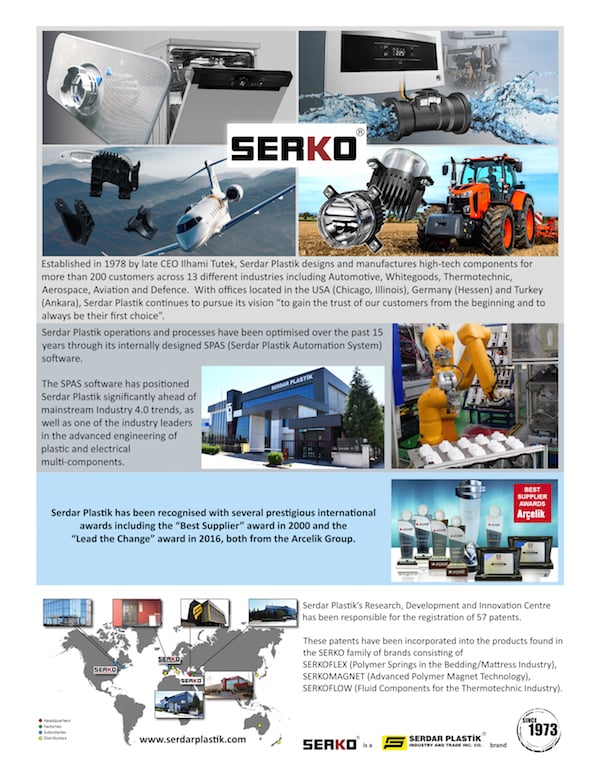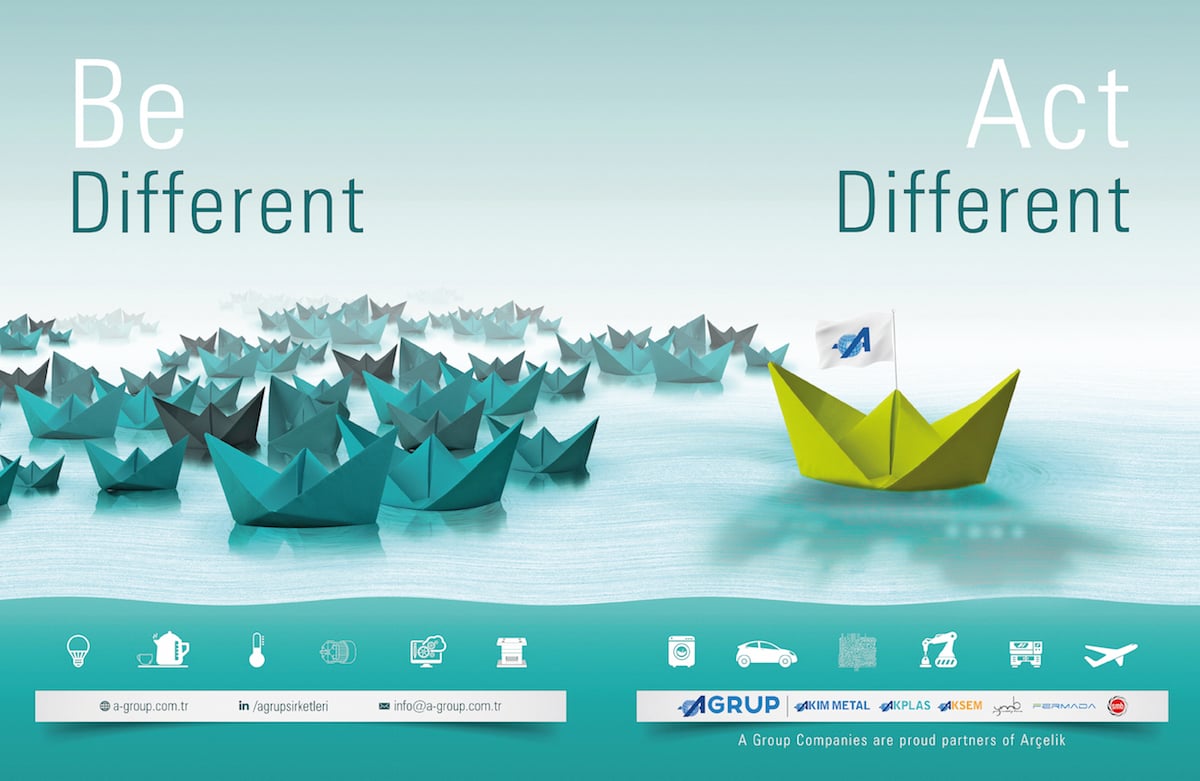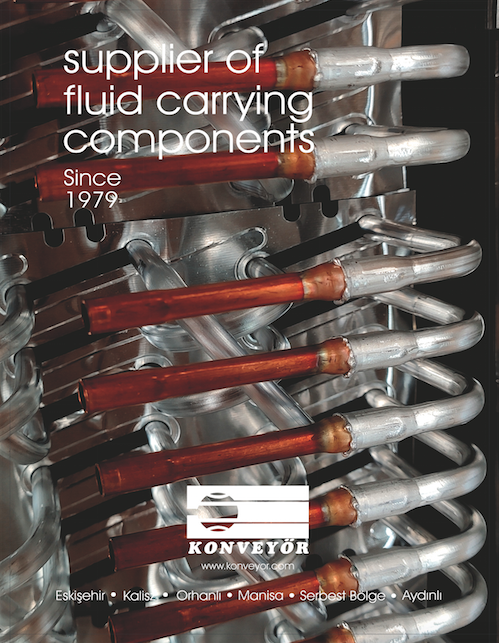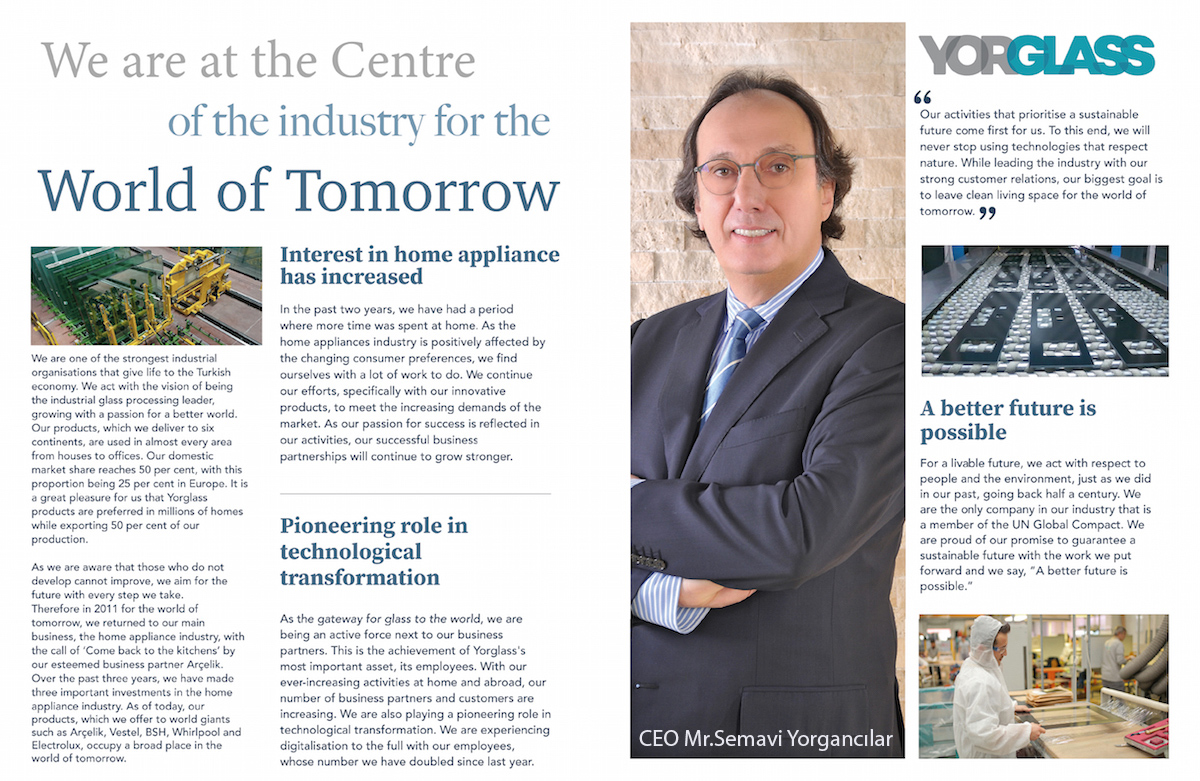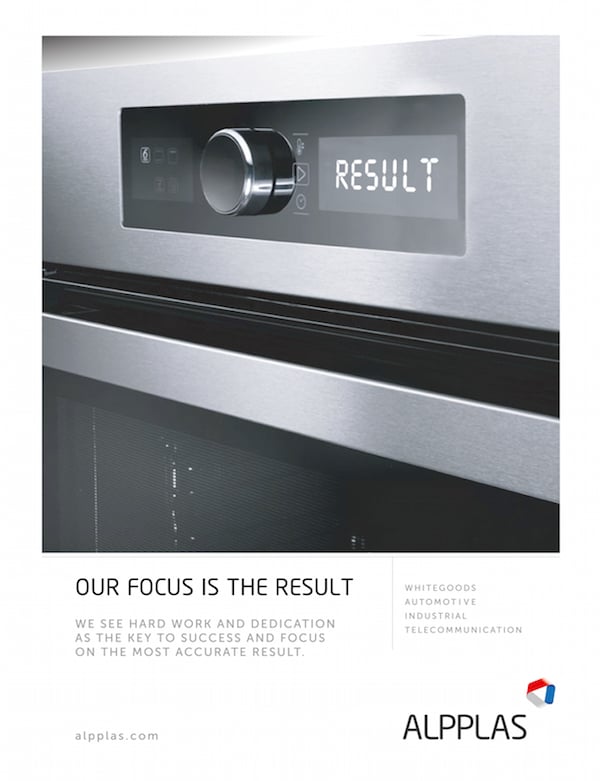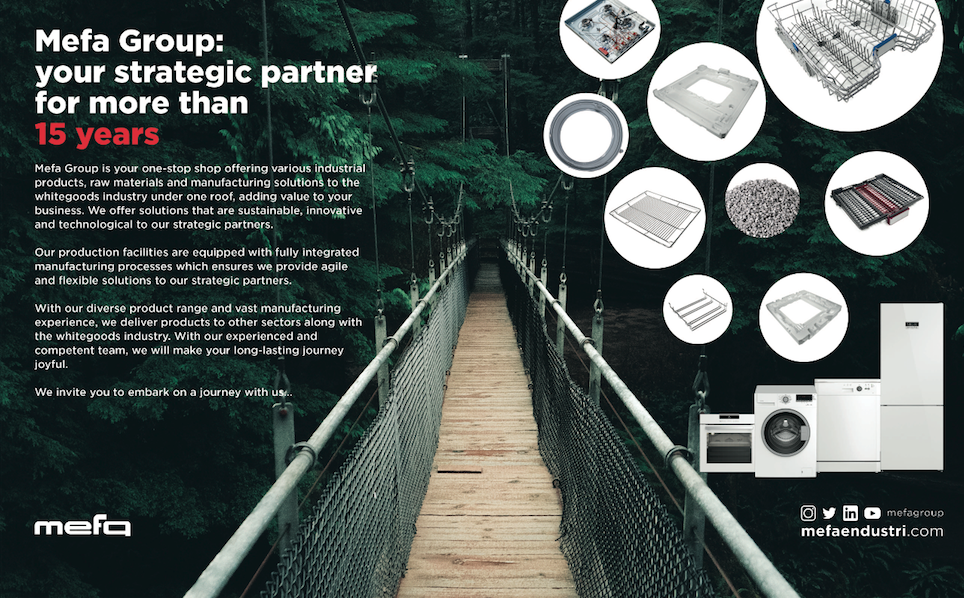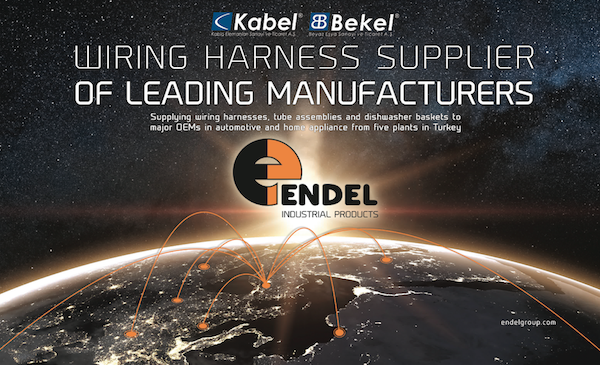Sustainability may be on the lips of CEOs and other business leaders around the world, but there are few who express their views on the topic as openly and forcefully as Hakan Bulgurlu, the CEO of the global home appliances giant Arçelik. He is unabashedly blunt about the impact his industry has on the climate and what needs to be done about it.
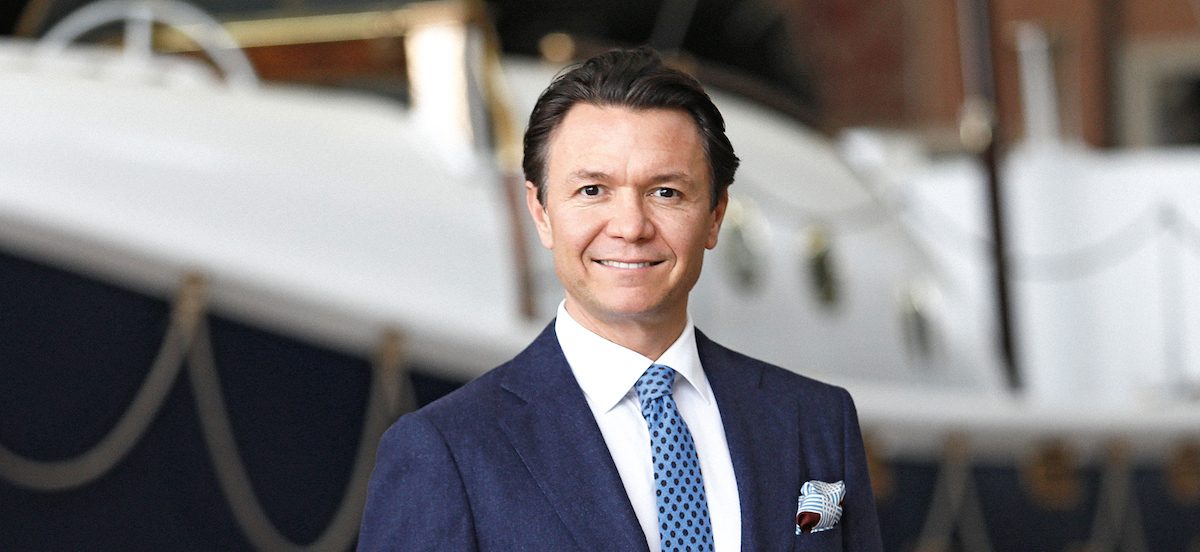
However, what really sets Hakan apart from other CEOs, who are often keen to balance climate concerns against various other considerations, is his willingness to call out what he sees as inaction wherever he encounters it, and to admit that even the efforts he has taken at his own company are still not good enough. “You’ll see CEOs say they will become carbon neutral in 2030,” he says.
“Those are the best ones. But some go as far as 2050. And my answer to them is, ‘In 2050, you’re not going to be around. All you’re doing is passing the buck to the next generation. You don’t want to deal with it.’ That is not acceptable. That is being on the wrong side of history.”
Arçelik became carbon neutral in 2019, a move that Hakan hopes will set an example and push other companies and industries to speed up their efforts to also become more sustainable. “Behaviours will have to change, and they will only change if there are examples like us out there who are becoming carbon neutral from today and committing to staying carbon neutral going forward. So maybe you could call us an activist in this space,” Hakan says.
Scope for improvement
While Hakan expects high standards from his peers in the business world, he is even more stern with himself, drawing on an in-depth knowledge of climate policy to offer a frank assessment of Arçelik’s progress so far. The company may have achieved carbon neutrality, he explains, but that is just a tiny piece of the puzzle. The company is only carbon neutral in its own operations, which are referred to in climate policy as Scope 1 and Scope 2 emissions.
Today, what is expected is a ceo who can build purpose into the business.
Its Scope 3 emissions – the carbon footprint of the company’s products after they are sold to the customer – are still carbon positive. “Arçelik is carbon neutral in all its manufacturing operations globally, right? This is Scope 1 and Scope 2 emissions,” he reveals.
“But actually 98% of emissions caused directly or indirectly by Arçelik are Scope 3. So we are only carbon neutral on 2% of those emissions. Now, you won’t get any other CEO talking about that either, for obvious reasons.”
Hakan, though, sees no issue with being open about the challenges; he sees it a necessary part of making future progress. “We’re fully open, fully transparent, and we want this message to get as far and wide as possible,” he says. “What we want to do this year is make some very aggressive 2030 claims on reducing our Scope 3 emissions. This is the new focus for the coming year.”
Some of the technologies that Arçelik will need in order to reach these Scope 3 targets don’t yet exist. “It will be challenging to reach the targets we will be setting, but we will get there. And, hopefully, that will become an example,” Hakan adds.
With more than 40,000 employees and 28 factories in nine countries, supplying electronic goods to hundreds of millions of consumers in markets across the world, Arçelik’s footprint is substantial, meaning its potential for positive change is also great.
The company’s best-known brand is Beko, a name that adorns the shirts of the Barcelona football team and is also found on dishwashers, refrigerators, washing machines, ovens, coffee makers, microwaves and food processors all over the world. It also makes large-screen TVs, heating and cooling systems, radios and solar panels.
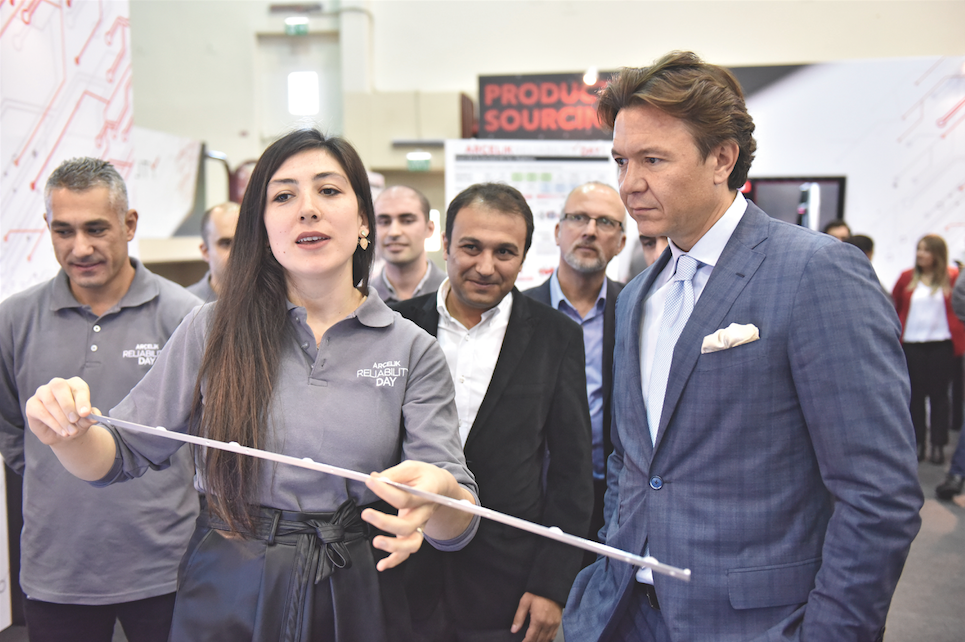
“Pretty much everything that you use in your home, we make,” he shares. For Hakan, climate action goes well beyond his role in the boardroom. Two years ago, he climbed Mount Everest to raise awareness of the monumental task facing humanity in tackling the crisis.
He has been writing a book, A Mountain to Climb, based on his experiences, which is also part of his mission to spread the climate message far and wide. One reason he is so motivated to fight climate change is his children.
“When I was my kids’ age and my parents were concerned about the future, their concern was probably the size of the house I was going to live in or the type of car I was going to drive or where I was going to live,” Hakan says.
“Whereas my concern now is, are my children going to have enough to eat? Are they going to have shelter? It’s a very different level of concern. Even though the world looks a lot wealthier, the risk has grown so much that it’s unspeakable even.
“It shocks me that people don’t think in those terms. They’re much more aware too that the world is hyper-connected today, so they know exactly what’s going to happen to them. I think they’re going to revolt eventually if we don’t do something. We’re all going to be on the wrong side of history, by the way, no matter what we do. I at least want to do my best.”
Unadulterated data
Hakan began his current role at Arçelik in 2015, but he has been working with the company in one form or another for more than two decades. In that time, he has seen the drive for sustainability permeate every corner of the company. “All 40,000 employees around the world understand what this means and strive to help us become the most sustainable business that exists today,” he says.
Corporate Green Bonds: A First For Turkey
Arçelik announced in May that it was issuing a green bond, the first time a Turkish industrial company has done so on international markets. The company mandated JP Morgan Securities, Merrill Lynch International and MUFG Securities EMEA to arrange the offering, and the notes are listed on the Euronext Dublin stock exchange. Arçelik plans to use the €350 million bond to finance numerous green projects, including circular economy-adapted products and efforts to make its production activities more energy efficient. It will also be used to fund the company’s sustainable water and wastewater management initiative, as well as projects to prevent pollution and promote renewable energy and green buildings. Polat Şen, Arçelik’s CFO, says the bond would drive home the company’s sustainability credentials: “The success of green bond issuance illustrates the investors’ confidence in Arçelik’s ability to implement ESG projects. The bond will support us to diversify our funding options with a rapidly growing finance mechanism, allowing Arçelik to access a broader base of long-term and green investors. This bond emphasises our commitment to sustainability and helps us continue to lead our industry in our sustainability initiatives.”
Hakan serves on the Carbon Pricing Leadership Coalition of the World Bank, a role that has given him direct access to reams of information about the climate crisis. “I’ve been privy to incredible amounts of data. I’ve looked at a lot of scientists’ data, unadulterated data, and I’ve been able to see, firsthand, what’s happening, such as temperature rises and CO2 levels in the atmosphere, increasing in parts per million. So I know what’s happening,” he shares.
“With that knowledge, I can comfortably tell you that any business that is not putting this at the forefront of its thinking, and doesn’t have a strategy around this, will not be around in five years. I don’t care how rich that business is. I don’t care how incredible its growth trajectory looks today. It just simply won’t exist.”
With confidence and optimism forming such a key part of most businesses’ messaging, such stark assessments can be a hard sell. “Because this is an existential threat, it’s not nice to consider. It basically means life as we know it will not exist anymore,” he admits. But ultimately, Hakan is also optimistic: “I do believe in humankind. I mean, we are a bit shortterm, but when we’re faced with an existential threat, we will do the right thing.
What does that mean? Well, it means the number one thing that drives business behaviour is consumers voting with their wallets, and consumers will increasingly vote towards more sustainable brands and people who are doing the right thing by the planet.”
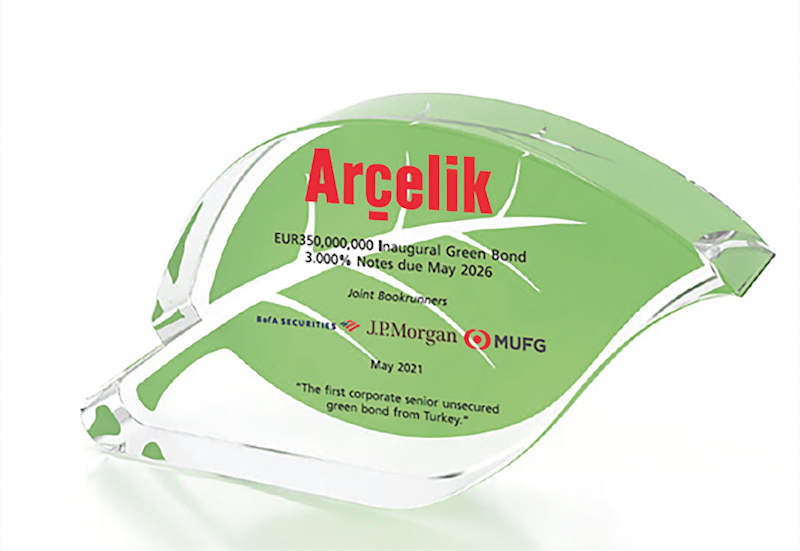
As proof, he cites a Nielsen study that showed 66% of people were willing to pay significantly more for brands that were doing the right thing. “Of course, there’s now a lot of greenwashing, but this type of thing is disappearing because independent verification is becoming stronger,” Hakan points out.
“Finance and resources are now, through various mechanisms, flowing into businesses that are doing the right thing. I think going forward, companies with the true credentials will stand out. So it actually makes really good business sense. It’s a business strategy. It’s not just a nice thing to have. It’s not just, ‘Let me print a sustainability report just so I’ve done it.’ This actually is a business model. This is the only way you can succeed going forward. I firmly believe this.”
Hakan says he has become weary of the way business leaders use certain words, like sustainability. For him, the word has to mean working for the survival of life as we know it. “What I see from sustainability is continuity, and that applies to the continuity of human life, of ecosystems,” he says.
“Human life alone is not possible without the environment we live in. For our businesses to be continuous, they will have to do the right thing by the environment. But what I would like to do is leave a better world to my kids than I have experienced. That’s what continuity means, and at the moment, this is seriously in jeopardy.”
While Hakan dedicates his time to raising awareness, he has also become quite weary of that concept. “We are close to the point of no return, so this is the sense of urgency that we have to create. I think there are multiple steps, and raising awareness is now another term that I don’t like simply because it’s no longer enough,” he insists.
Hakan tries to ensure that he inspires meaningful action when he raises awareness. He speaks frequently to members of the Young Presidents’ Organization, a US-based platform for chief executives with around 30,000 global members. What he often finds when talking with members is that there is a strong appetite to be a part of the solution, but many often feel lost about what role they can play.
“I see people are very interested, but they really don’t know what to do,” he admits. “More guidance is needed in terms of the low-hanging fruit and explaining that you don’t have to spend money for this, and that you can actually make money from doing this. You can differentiate by doing this.
“Today, if you took €100 million and said, ‘We’re going to invest this in our brand, in marketing, in TV commercials’ or, ‘We are going to invest this in some key sustainability initiatives to make our company different in our industry’, I can guarantee you that the consumers will respond to the second one in far greater numbers than the first one.”
That’s due to the fact that the traditional model of building brands is over because it’s too expensive, so differentiation is key. “There’s a unique chance in this period to actually overinvest in sustainability and differentiate your company from the rest in that manner,” Hakan says.
Easy sell
Because sustainability is good for business, Hakan has enjoyed a lot of support for his mission from the inside of Arçelik. “This is an area where everyone has to work together, and that message is a powerful one. It’s not difficult to convince the shareholders that this is the right path to go down. I’m very lucky that I’m able to pursue what is a personal mission with the business platform that I run, and the platform that I run happens to have huge scale and impact,” he says.
That impact is felt even more keenly in nonWestern countries, where the bulk of emissions growth will come from the future. According to Hakan, the fact that Arçelik is Turkish places the company in a valuable position to impact the way emerging markets take on the climate crisis.
“This is not Sweden or the US, where you would expect more climate-related awareness. And therefore, it is three times more important than a Western version, as it can set a real-life example for any business in these emerging markets,” he says.
Hakan acknowledges that Turkey was historically at the end of the Silk Road from China and has a long history and culture of trading with the East over thousands of years. Arçelik’s strategy is to retrace the Silk Road, expanding back toward China and taking leadership positions in markets along the way.
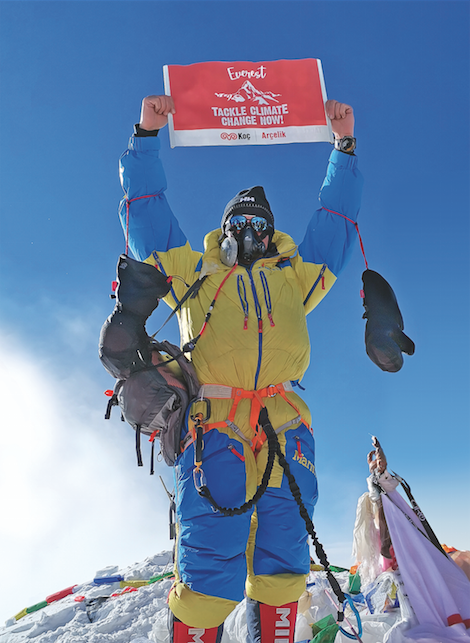
“Most of the growth in the future will come from those markets,” he believes. “Penetration levels are very low. Populations are very large, and income and gross domestic profit growth is significant. I take pleasure in saying that we have actually succeeded in a lot of that strategy, which has not been easy. These are places that are very difficult to operate in, and at the same time, we have been growing our businesses in the developed world. Today, 45% of our business is Europe, but we’re steadily increasing market share almost everywhere.”
Arçelik now has number one positions in many markets and is in the top three in most European markets, where the company is growing faster than the markets themselves. The company also has strong financial discipline, which Hakan plans to maintain amid future growth that will be fuelled in part by acquisitions of more “local champions”, as he calls them.
The company has already acquired Blomberg, a German brand that is more than a century old, as well as Flavel in the UK and Ireland, and Defy, a leading home appliances brand in South Africa. Hakan believes Arçelik has become the leading emerging-market player in the industry. “We will continue to grow in regions where we are underrepresented at the moment. At the same time, of course, we will maintain our productivity,” he predicts.
I do believe in humankind. I mean, we are a bit short-term, but when we’re faced with an existential threat, we will do the right thing.”
“Contrary to our competitors, all of our manufacturing assets are in geographies and markets where there’s a labour advantage. We don’t have any legacy factories in Italy or in Germany, which are impossible to close or too expensive to operate, and all of our factories are very large-scale.”
Innovating sustainability
Arçelik invests heavily in research and development, with a substantial part of those efforts focused on sustainability. There are two key areas where the company innovates: production technologies and products themselves. “If your purpose is sustainability, then advancing production technologies is a must,” Hakan stresses. “We’ve been investing quite aggressively in this field.”
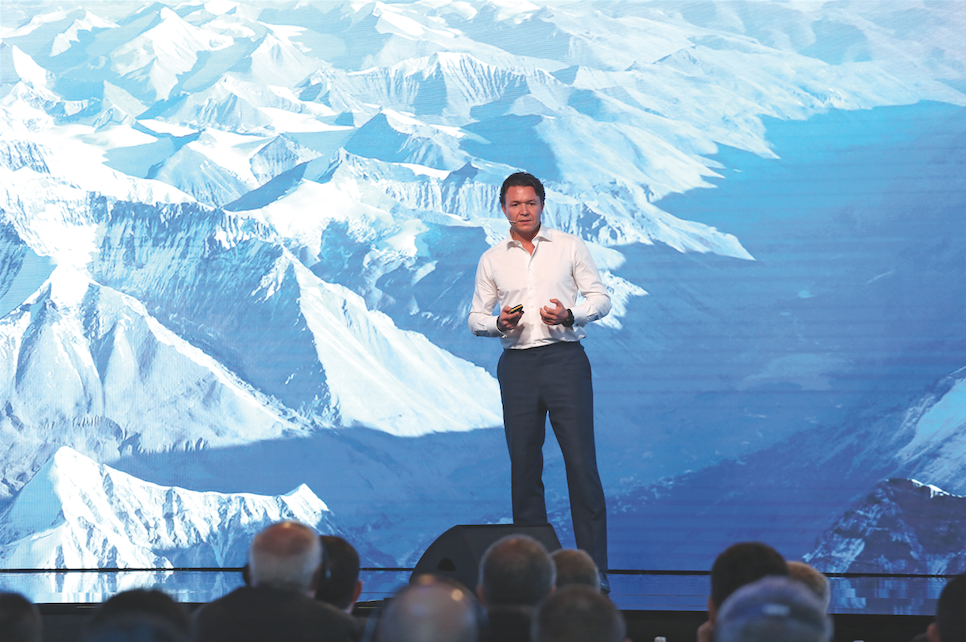
The company’s greenfield factory in Ulmi, Romania, which makes washing machines, is as close to a fully automated factory as you can find in the industry. The facility runs on data, which it collects from 22,000 input points. It can automatically change its production plans based on the changing data, which has helped to vastly improve resource efficiency.
The factory consumes 28% less power per washing machine than at Arçelik’s other facilities. It also recycles water and produces its own energy with solar panels, while using heat pumps to control temperatures inside.
The high level of automation – about 70% – guarantees simplified production and more serviceable, more repairable products with much less waste. In fact, the factory was chosen by the World Economic Forum to join its Global Lighthouse Network of advanced manufacturing sites.
“It’s the most advanced manufacturing facility in our industry,” Hakan says. “We invested a lot more than we should have, probably, but now we know what works, and these are the Arçelik manufacturing technologies for our digital smart manufacturing system that we will roll out to all our other plants.”
The company has also shown global leadership in sustainable product innovation. “We need to make products simpler, better; they need to last longer and they need to answer the changing needs of our customers,” he explains.
“Here, I think, we have really made some major gains.” One example is the company’s microfibre filtration system for washing machines. “In every wash, with the growth of fast fashion and synthetic fibres, you are putting about a million pieces of microplastics in the ocean, and municipalities are not equipped to actually filter this,” Hakan shares.
The number one thing that drives business behaviour is consumers voting with their wallets, and consumers will increasingly vote towards more sustainable brands and people who are doing the right thing by the planet.
“It all goes into the sea, the fish eat it, then you eat the fish and you get cancer – surprise, surprise. So basically, every fish you consume has some plastic in it.” While Arçelik could have easily decided this was a problem that fast fashion and synthetic yarn producers ought to solve, the company decided instead to find a way to be a solution.
“We came up with the patented technology to create a filter that is fully recyclable itself. It’s a black box. You can’t open it and wash it out, but it filters up to 90% of these microfibres. Then you just recycle the filter, and it becomes another filter.”
Hakan and his team decided the technology was so important that everyone should have access to it, so they waived their patent rights and allowed competitors to produce the filters free of charge.
“I’m very happy to see that France and California in the US have already legislated to make this filter mandatory
in washing machines from 2025,” he says proudly. “For the record, I think that’s way too late. I mean, what I don’t like is corporate CEOs and governments always saying 2025, 2030, 2050. I don’t believe that time line exists. It’s today that we have to make a difference.”
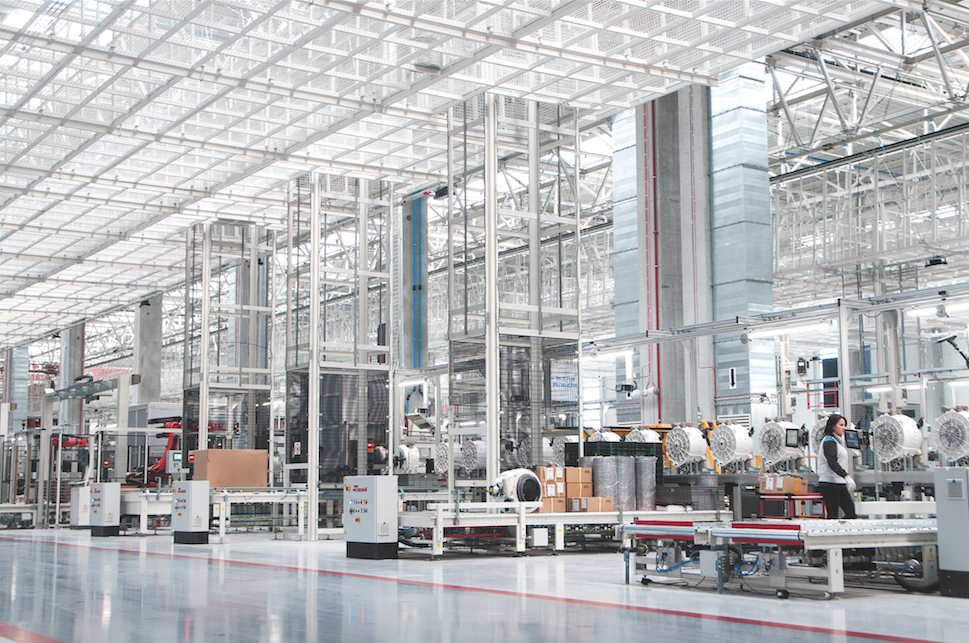
Arçelik is even innovating to reduce food waste. It started by producing a prototype “food computer”, a microgarden, which could store perishable food while controlling conditions to ensure it lasts as long as possible. While the computer was not commercially viable because of the cost, the company took the lessons it learned from that prototype and made modifications to its refrigerators.
“This means that now, when you put food in our compartments, it is going through the daily cycles of light and humidity, moisture control, keeping the vegetables and fruit fresh for up to 30 or 40 days longer than normal,” Hakan says.
“We’re replicating the full 24-hour sun cycle. It’s pretty unbelievable what that does, if you look at physical tests of what happens to strawberries or lettuce. We’re attacking waste in every sense.” The company has also launched a refrigerator made of bioplastics.
Contrary to our competitors, all of our manufacturing assets are in geographies and markets where there’s a labour advantage. We don’t have any legacy factories in Italy or Germany, which are impossible to close or too expensive to operate, and all of our factories are very large-scale.
“The brief I gave to the R&D team was, ‘If I bury this fridge in my garden, then two years later I don’t want to see anything,’” Hakan says. “We’re not there yet, but we’re 70% there, meaning instead of using plastics, which will be there forever, we’re able to actually replace those with things made of food waste. So there’s huge progress everywhere, and we just need to keep driving.”
Market failure
What gives Hakan hope is that these innovations and ideas are coming directly from engineers who believe in the mission. “It’s not top down – it is really driven from the bottom up – but we do give them the tools,” he reveals.
“For example, we probably have one of the most advanced innovation labs in the world, the fast prototyping lab. We call it Garage, and we have basically enough equipment to make anything out of 18 different materials, including steel, glass, silicone, plastic and wood.”
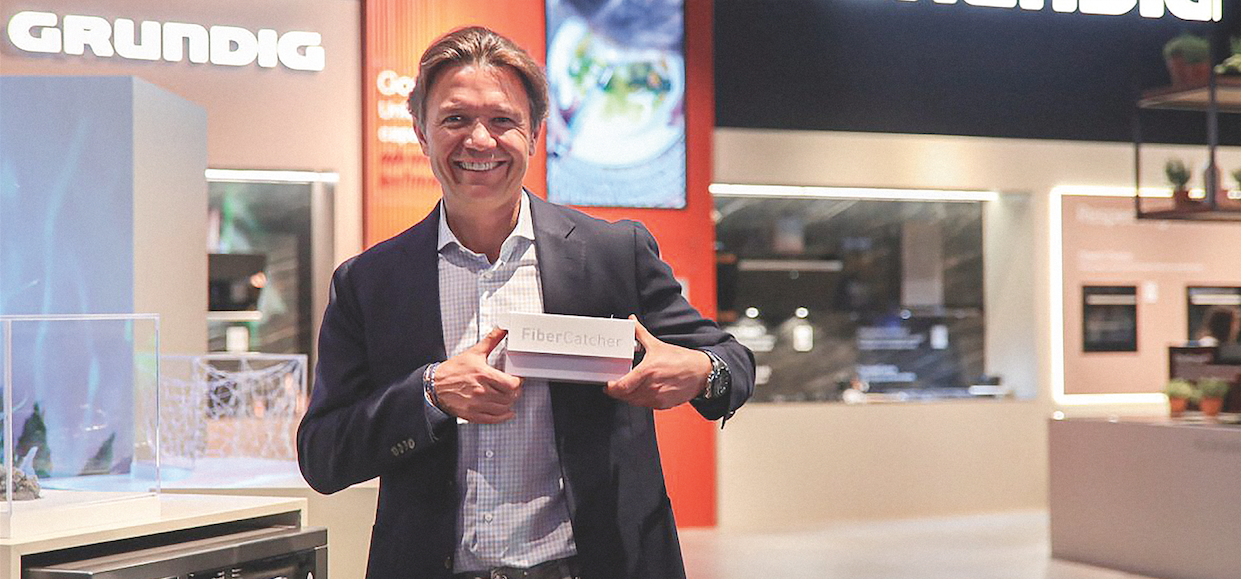
All of this means an engineer in South Africa can have an idea, email it to the innovation lab on the same day, and then a prototype can be ready by the evening, which allows for numerous iterations to get things right and give the idea the best chance of success.
“You can have the skill set, but you have to have the infrastructure as well to actually test those ideas and make them into products,” Hakan says. Arçelik began investing in R&D a little over 25 years ago and has since become a highly disruptive force in the home appliance industry.
According to the World Intellectual Property Organization, it’s the only Turkish company in the top 100 list of companies with the highest number of international patent applications in the last five years. “We have grown over the years from a more entry-level, price-conscious sort of value brand to a brand that’s innovating and democratising technology,” he shares.
Hakan believes that governments, consumers and business all have a vital role to play in tackling the climate emergency. “There are three things that need to happen for us to win this global battle,” he says.
“One, consumers need to change their consumption patterns and behaviour. That’s critical. Without that, you really can’t guide businesses. The second thing is that businesses need to transform and make this a complete priority, reduce the resources they use and become much cleaner in their operations.”
The brief I gave to the r&d team was, ‘if i bury this fridge in my garden, then two years later I don’t want to see anything.
The third requirement is government intervention. “I believe in the free market, and I believe markets are the most efficient way of allocating resources. But when we come to this topic, they’re not. Why? Because nature itself is a diminishing resource,” he points out.
“Markets and the free market economy have taught us that if there’s a diminishing resource, its value must go up. But for some reason, nature has no value in our equation. The number of species we’re destroying has no value in our equation. I mean, there is value, but we don’t know how to value it today. Therefore, what’s needed is government regulation. We need to come up with a carbon pricing plan that is global, that is unified, and that is integrated. With that plan, I believe we can have success.”
Hakan has, of course, also been steering the company through the other crisis that is currently facing humanity – the COVID-19 pandemic. Global revenues have been flat as a result of the virus, but the damage was counterbalanced by more and more people buying home appliances online.
In India, for example, the firm’s dishwashers became more popular because people who usually hire cleaners were unable to have them come to their homes anymore. Overall, the pandemic has caused a notable shift in consumer behaviour whereby they value the things they buy for their homes even more, according to Hakan.
Ecosystem approach
Like many manufacturers, Arçelik dedicated some of its production capacity to making mechanical ventilators for COVID-19 patients. “I don’t know why they call it a mechanical ventilator, by the way, because there’s nothing mechanical about it,” Hakan adds. “It’s extremely electronic and very complicated, and your life depends on it.”
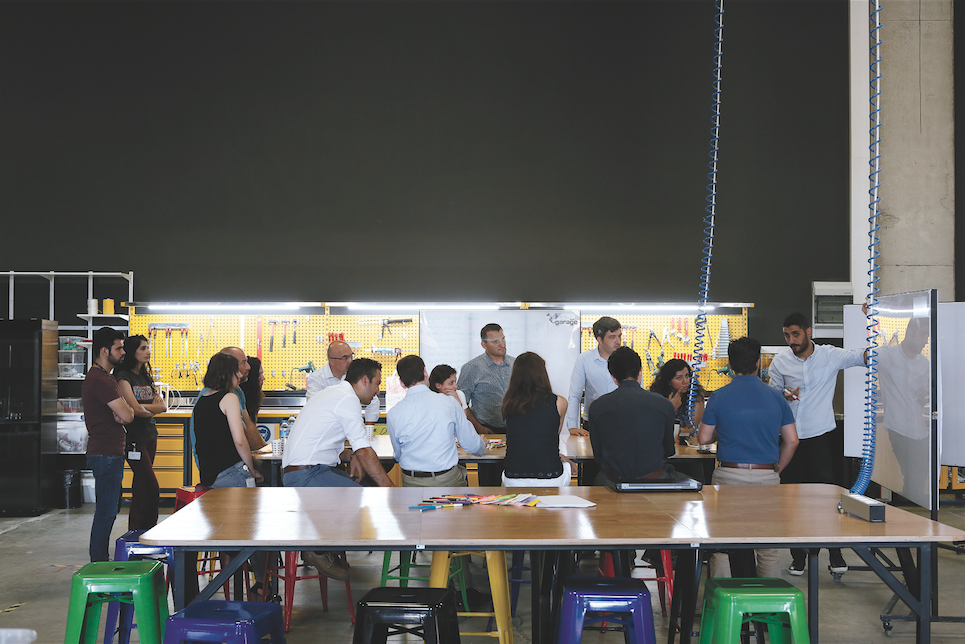
The company had no prior experience in the medical field and was therefore dependent on strong partnerships to produce its ventilators. “To be able to go from zero knowledge in medical equipment and have the first product off the production line in two weeks – that’s not something you can do yourself,” he points out.
“We found a startup that had a design. We took that design, worked with them day and night and redesigned it to make it more manufacturable.” Arçelik also teamed up with a defence contractor that devoted its entire hundred-strong team of software developers to writing the code for the machine. The company worked with the Turkish health ministry as well to bring in hospitals to check and test the devices.
“We had a startup, we had a software developer, we had the government, and we had hospitals all involved, working together as a team, 24 hours a day, literally,” Hakan says. “So I really believe that you can do anything if you just make sure you are developing partnerships in every sphere of influence, and with every single stakeholder.”
When it comes to climate, that means working closely with suppliers and manufacturers to ensure they are pursuing the same goals as Arçelik. “If we’re concerned about emissions that a certain part is causing or about the materials it’s using, we make sure the same standards apply to our suppliers as well and help them on that journey,” Hakan says.
Raising awareness is now another term that I don’t like because it’s no longer enough.
In an even broader sense, an ecosystem of strong partnerships is vital for tackling climate change, he believes.
“With the Green Deal, Europe is going in the right direction, putting in regulations, which will make a difference. But unfortunately, Europe is only 8% of global emissions. Europe can only be a good example at best because, in 10 years, emerging markets will be emitting so much more that this percentage will go down even further, and they’ll be even less relevant. For the world to get better, we need to work as an ecosystem altogether to reduce these emissions. It doesn’t matter who is emitting them. I mean, they don’t have borders or nationalities.”
The same principle applies inside the company. “We can be as good as we want to be. We can have the purpose, we can have the technology, we can have the drive. We can have the financial muscle, the competitive advantage in many, many areas. But without the ecosystem, none of it works,” Hakan explains
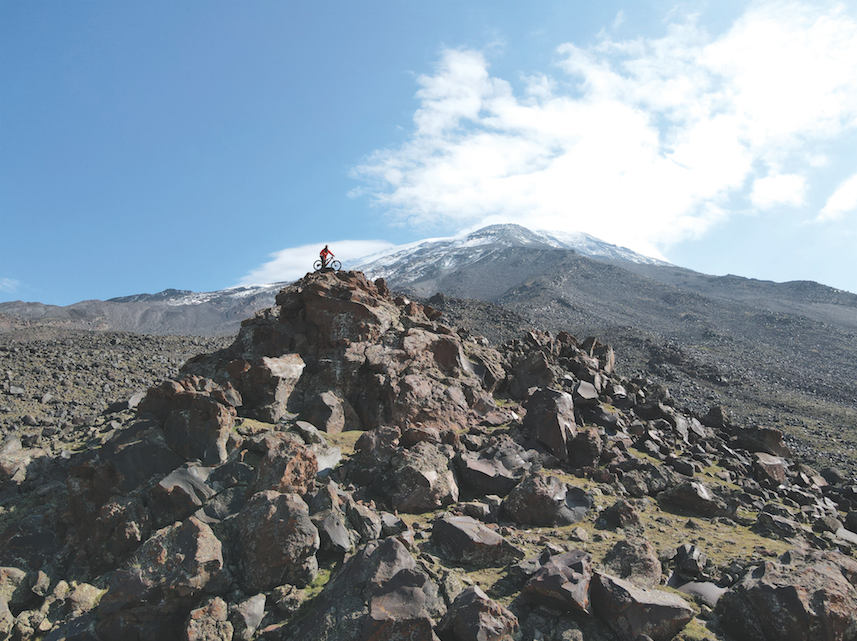
“Our immediate ecosystem is basically all of our suppliers and our distributors, the retailers and our customers. That whole value chain needs to improve step by step.” One of Hakan’s primary goals as a leader has been to build a culture where the business has a purpose and people at all levels are driven to succeed in it, with or without directives from the top. “I think the old days of the celebrity CEO are over,” he reflects.
For some reason, nature has no value in our equation. The number of species we’re destroying has no value in our equation. I mean, there is value, but we don’t know how to value it today.
“Today, what is expected is a CEO who can build purpose into the business. I am proud to say that I have succeeded in that somewhat.” The CEO’s role today, Hakan says, is to be a servant to the company: “It’s the organisation itself that has the mission and the purpose now. My job is to enable people to bring out their best possible selves and move the organisation forward as one organism. It’s a totally different way of managing,” he explains.
“And it’s probably more involved, but it’s what the young people of today are demanding. They don’t want to simply work for someone; they want to work for a purpose.”
Proudly supported by:
